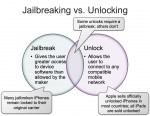If you’ve traveled much, you’ve probably run across “unlocked†mobile phones and devices. If you own an Android or iPhone smart phone, you probably also heard about “jailbreakingâ€. It seems like lots of people are confused about these two things, so I decided to write down a quick post explaining them.
ClearWire
Cheap, No-Contract 4G Data: Clear’s Undocumented Daily- and Weekly-Pass Plans
Although Clear clearly wants buyers to sign up for monthly service, they also have “secret” on-demand 2-hour, daily, and weekly plans. Here’s how to get online cheap!
Hands-On Review: Clear WiMAX Service (and PXU1900 USB Modem)
I know lots of folks who are happy with Clear or Sprint WiMAX service, and I applaud them for their no-contract Day Pass option. In fact, I wouldn’t hesitate to suggest that others go the same route I did: Buy a Clear modem on eBay and pay $10 per day whenever you need connectivity. But I strongly discourage readers from signing up for a long-term contract with Clear. Sprint subscribers will likely be upgraded to LTE eventually, but the future of Clear is very, very cloudy.
4G Connectivity Options Proliferate
I set out to find a faster mobile broadband service than the AT&T and Sprint/Virgin service I currently use. But exploring the world of LTE and WiMAX was a real eye-opener. I didn’t purchase a device (two, actually), but discussion of those will have to wait for my next post.
4G: Is It Really A Standard If No One Cares?
Americans have terrible mobile broadband network infrastructure, yet our service providers make it sound awesome. Now that 2 of our 4 national wireless providers now offer 4G service, one might conclude that the United States is awash in mobile broadband. But neither of these supposed 4G offerings is anywhere near fast enough to meet the ITU standards for 4G, and even our 3G networks woefully under-perform vendor promises. With no teeth in “truth-in-advertising” laws, it begs the question of what these supposed standards really mean.



